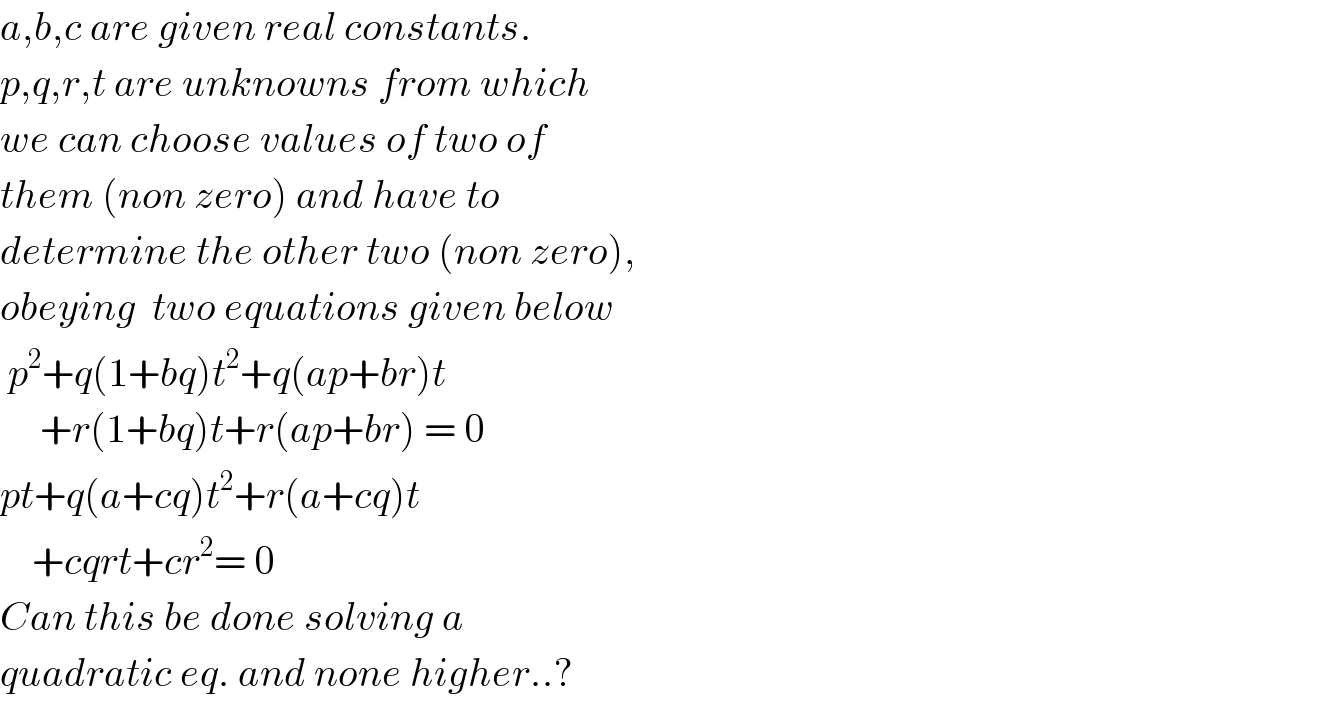
Question Number 74412 by ajfour last updated on 24/Nov/19

$${a},{b},{c}\:{are}\:{given}\:{real}\:{constants}. \\ $$$${p},{q},{r},{t}\:{are}\:{unknowns}\:{from}\:{which} \\ $$$${we}\:{can}\:{choose}\:{values}\:{of}\:{two}\:{of} \\ $$$${them}\:\left({non}\:{zero}\right)\:{and}\:{have}\:{to}\: \\ $$$${determine}\:{the}\:{other}\:{two}\:\left({non}\:{zero}\right), \\ $$$${obeying}\:\:{two}\:{equations}\:{given}\:{below} \\ $$$$\:{p}^{\mathrm{2}} +{q}\left(\mathrm{1}+{bq}\right){t}^{\mathrm{2}} +{q}\left({ap}+{br}\right){t} \\ $$$$\:\:\:\:\:+{r}\left(\mathrm{1}+{bq}\right){t}+{r}\left({ap}+{br}\right)\:=\:\mathrm{0} \\ $$$${pt}+{q}\left({a}+{cq}\right){t}^{\mathrm{2}} +{r}\left({a}+{cq}\right){t} \\ $$$$\:\:\:\:+{cqrt}+{cr}^{\mathrm{2}} =\:\mathrm{0} \\ $$$${Can}\:{this}\:{be}\:{done}\:{solving}\:{a} \\ $$$${quadratic}\:{eq}.\:{and}\:{none}\:{higher}..? \\ $$
